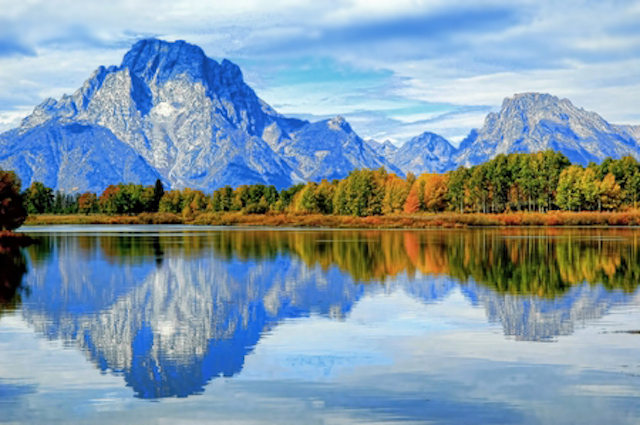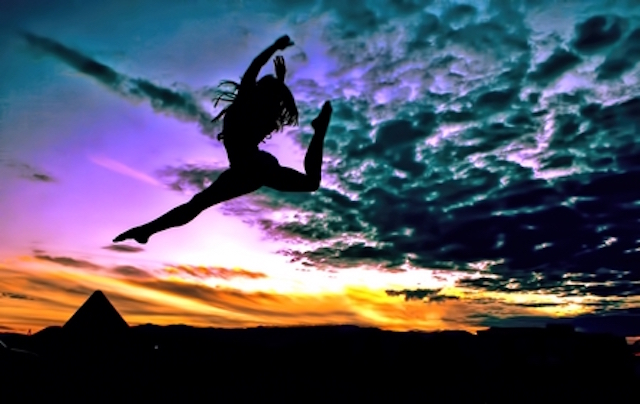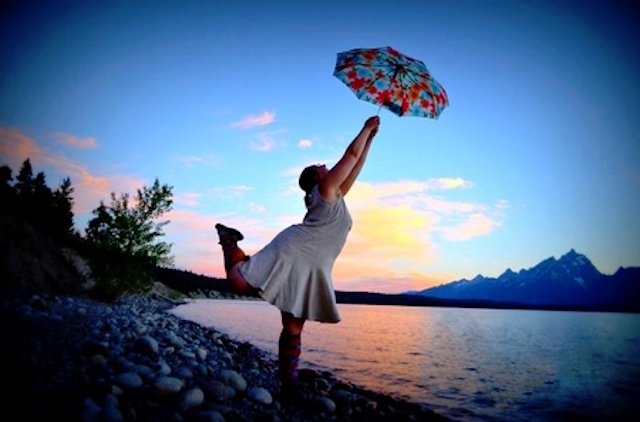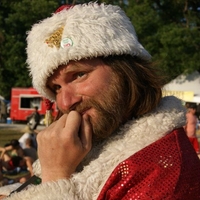One afternoon in the fall of 1994, alone in a log cabin at the base of the Grand Teton Mountains, I readied myself for a hike.
I slid on a t-shirt, khaki shorts and dusty hiking boots. A breezy warm front from the desert Southwest lifted day time temperatures in the 80s while Aspen leaves blanched into autumn yellow. Serrated mountain peaks towered as a granite cathedral.

I chose not to carry water or wear a jacket.
These were choices I made because this was a hike from which I wasn’t planning to return.
Perhaps it was odd to make such a desperate choice on such a beautiful day.
Snapdragons and broken goldenrod sunlight swirled overhead, alongside thoughts of what had led me to this point, as I began the short hike. The gnarled switchback trail leading to my suicide attempt began in rural Southern Virginia, where I grew up the son of a Southern Baptist preacher. Wanting to make my father proud, I chose the path to become a minister as well. That spring I had graduated from seminary and would soon look to take over a church, likely in a rural Virginia town, like my father.
By chance, before graduation, I stumbled on a career recruiter who signed up seminary students for a program that placed aspiring preachers to conduct Sunday church services at National Park campgrounds. I immediately signed up for a short summer stint in the Tetons. I’d always wanted to see moose, elk and the Rocky Mountains. After the contract ended, I figured I’d head back to Virginia to fulfill my destiny in the ministry.
But somewhere along the way, my heart shifted like an overstuffed luggage bag in the overhead bin of plane lurching through unexpected turbulence.
I’d decided not to return to Virginia—this was akin to realizing that I had been breathing from someone else’s lungs my entire life and finally taken my first breath inhabiting my own body. As exhilarating as the moment was, my choice had devastating consequences for my family relationships. Insults were hurled like pockets of loose shale intended to cut. Emotionally charged words like “betrayal” and “guilt” shattered the beauty of my epiphany.
I was, for the first time in my life, truly alone.
As an adopted child, the pain of abandonment was ulcerous. Somehow I had managed to become twice banished, and certainly, it was all my fault. There was only one choice remaining.
I slipped on my boots and began my slow death march, ironically, to a location called Inspiration Point.
I was about to become a tragic statistic.
The Center for Disease Control has reported that nearly a million Americans attempt to take their lives every year, one person every 14 minutes. The CDC further estimates that twice as many Americans harbor suicidal thoughts. I pictured my death clearly as a leap from a sweeping cliff band of exposed granite, my arms spread wide open to an autumn white wine goblet of sun.
The viewpoint that afternoon was glorious.
Inspiration Point is an open, boulder-strewn area resting about a half mile above the tourist-popular Hidden Falls. At 7,200 feet elevation, the point rises 417 vertical feet above Jenny Lake. Two gnarled fir trees guarded each side of the view, in what otherwise, was a full 180 degree view of the entire Jackson Hole valley and the faraway Gros Ventre mountains. A distant thunderstorm roiled over the horizon. Charcoal broomwisks of rain swept the distant peaks like an angry overworked mother. I slowly stepped to the precipice.

I gulped the thin mountain air, held my arms out, and then heard a hoarse whisper, “It is not your time.” At the time I believed it was the Grim Reaper himself calling me back from the brink. In retrospect, perhaps it was merely the feverish voice inside my head scared sh*tless asking me to wait a second. Either way, a sudden gust of wind pushed me backward away from the cliff’s edge and I didn’t jump.
I never could have predicted what my life would grow into following that day.
Even though I am saddled with cerebral palsy that affects the right side of my body, I learned to alpine ski, hike up mountains and backcountry ski. I learned to mountain bike. I picked up a manual camera and learned how to use it. I became a photojournalist and traveled the country documenting concerts and music festivals. I’ve made the wildly artistic, desert Burning Man festival pilgrimage for 14 years running—where last year I was married in front of a fairy tale chapel and my home camp’s crew and their towering pirate ship art car.
Since the day I almost killed myself, I have lived a whirlwind existence.
And that life almost never happened.


Still, on that day in 1994, I trudged down from Inspiration Point feeling defeated. I felt too weak to live and too cowardly to die. And the ensuing three years were the most difficult of my life—my parents refused to speak to me or acknowledge the person I had become. I was riddled with lacerating pain and crippling self-doubt. (I now, work as a student aide. I’m not one to dispense advice, but parents out there, no matter how wayward or lost you feel your sons and daughters have become, please don’t turn your back on them-for any reason. Very few blows in life hurt more to a child than abandonment or abuse.)
At several points during those difficult years, before the internet age, I imagined a bright, shining moment that pulled me through the desolate moments. I visualized walking to a mailbox at the end of a long, gravel driveway where I plucked out a letter stuffed with affirmations and endless stream of encouragements.
It was titled. “Your Rainy Day Letter.” I re-read it whenever I felt despondent. It was my raspy whisper of hope.
Your Rainy Day Letter.
Dear Soul,
I want to offer you a small gift. It may sound like a canteen, rattling with the metallic clang of empty words. And that is okay. Nothing I say can ever presume to guess how you are feeling at this moment. That would be far too arrogant. Just know that behind any word I have to offer is a lifetime of dust-ups, scrapes, bruises and even more failures, losses, and the occasional two-by-four beam that flattened my frame. Just know, I have felt the sting of abandonment, confusion and grief.
Please consider my thoughts with no expectation from me.
There’s nothing wrong with you, despite how it feels right now. There is nothing abnormal about who you are. You aren’t broken or incomplete. You don’t need to be fixed or repaired. You are a complete and whole person. Even if you feel abandoned or are abused, you are not broken. You are not a mistake.
Even if you have one more breath, you have one more moment worth of life. I believe in you, even if you don’t.
The universe believes in you, and one day, perhaps sooner rather than later, you will believe in yourself.
There is no way I or anyone else can grasp how difficult your path has been. Very likely, your path has been far more difficult than mine. However, I can speak to my own life journey, and what I can say with certainty—life, even at its most rock bottom and irresolute darkness, isn’t the end of the world—it is, in fact, the beginning of life.
Some people will tell you that every broken thing in life can be fixed. We both know that some damage is irreparable. So, I won’t pretend otherwise. But even the pain that can’t be magically fixed, I have found, can be carried. You might even be surprised to find friends who are available to help carry debris that is too heavy to carry alone.
I love who you are right now. You are a perfect, fully formed being. And I love who you will become.
There will be changes, plenty of them, for sure. Still, you will be a perfect, fully formed being. If you can hold onto a hairline thin thread of truth about your worth, I promise, no matter the pain, healing will happen.
A smile will soon crease your face and your heart, and you too will feel the irrepressible lightness of being.
And it will it will ring like a bronze gong in a sunrise sky. It will echo against hard, granite cliff sounding like something new, sounding like hope.
Finally, I ask that you hold onto this letter ’til it’s yellowed, creased and tattered with age. Open it again and again, on all your dark, rainy days. Read this letter till it falls apart, so you may walk forward into the rest of your days, helping others in their struggles, gifted by your words and deeds.
Love always,
Your Secret Friend

~
Relephant:
Beginning the New Year with Gratitude.
Author: Andrew Wyatt
Editor: Ashleigh Hitchcock
Photos: courtesy of the author











Read 3 comments and reply